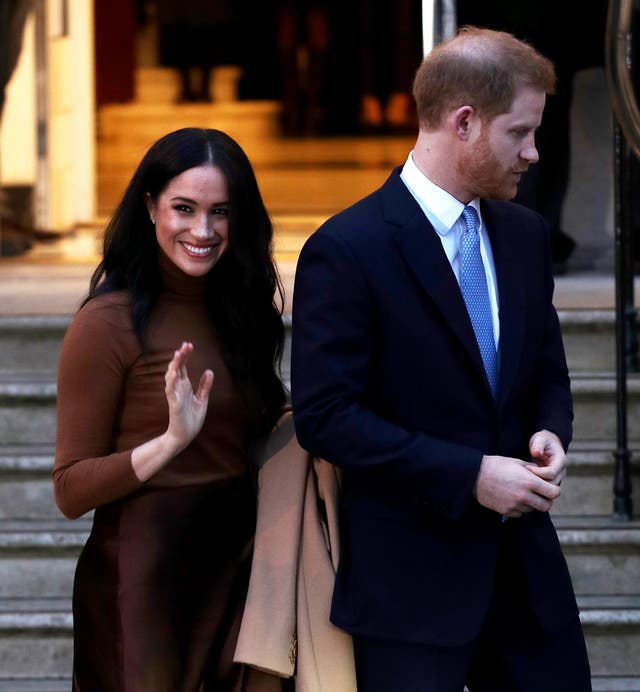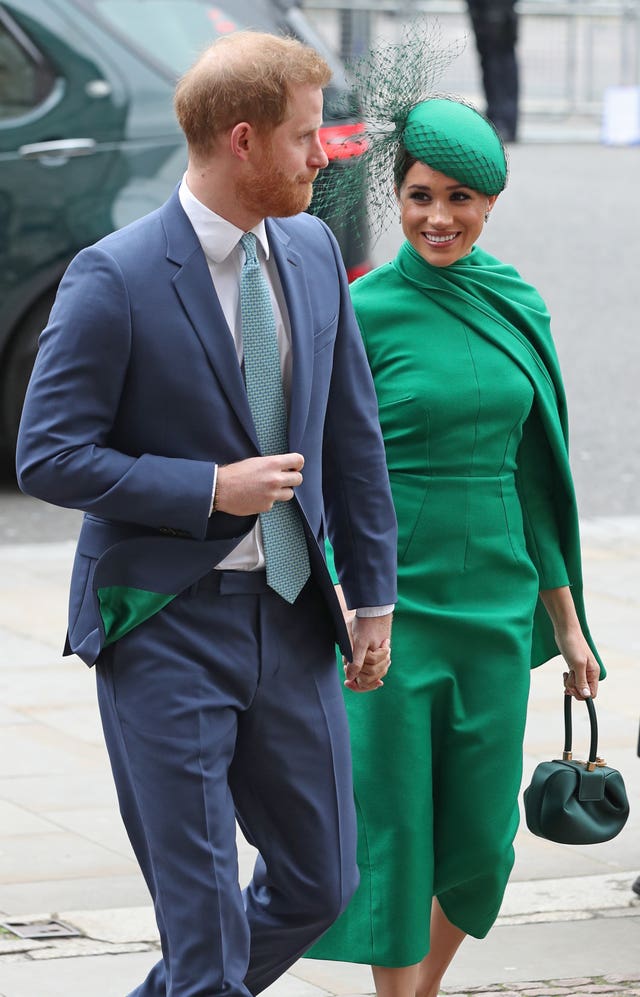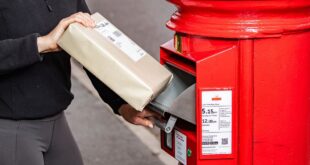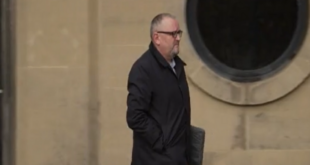A former aide to the Duchess of Sussex “regretted” not giving evidence after she won her legal battle against The Mail On Sunday’s publisher over its reporting of a letter to her estranged father, the Court of Appeal heard.
Meghan, 40, won a High Court privacy battle with the publisher earlier this year, after a judge found the publication of the letter to Thomas Markle, 77, sent in August 2018, was unlawful.
Jason Knauf, former communications secretary to Meghan and Harry, sensationally claimed in a witness statement released to the media on Wednesday, that the duchess wrote the letter with the understanding that it could be leaked.
Mr Knauf’s explosive evidence came on the second day of an appeal by the newspaper’s publisher Associated Newspapers Limited (ANL) against a ruling that the letter’s publication was a breach of her privacy.
Also on Wednesday, a statement from Meghan contained an apology to the court for not remembering an email exchange in which she agreed Mr Knauf could provide information to the authors of Finding Freedom, a book about the duke and duchess.
During the third and final day of the hearing on Thursday, further documents were released which revealed that a confidential source contacted the publisher with the information that Mr Knauf, who is due to stand down from his current role as the chief executive officer (CEO) of the Royal Foundation at the end of the year, regretted not giving evidence during the High Court proceedings.
In a witness statement, Keith Mathieson, solicitor for ANL, said he believed Mr Knauf’s evidence was “honest and credible”.
Mr Mathieson said that, in April, Mr Knauf’s then legal team contacted ANL’s lawyers to say he did not wish to have any involvement in the proceedings and that his position was “strictly neutral”.
However, following the judgment in Meghan’s favour, ANL was contacted by the source in July and approached Mr Knauf, who by then wished to provide a statement for the appeal.
He added: “Mr Knauf was plainly a central figure in the events he describes.
“He was a senior and trusted member of the royal household staff and he continues to occupy an important position as CEO of The Royal Foundation.
“His witness statement is measured in tone and he has been careful not to include evidence of matters beyond his own personal knowledge.
“Given the high profile nature of this litigation and the likelihood of his evidence (if admitted) being widely reported, as well as the position he holds, it is hardly conceivable that he would say anything he did not believe to be true and I know of nothing in his evidence which is subject to any reasonable challenge.
Meghan sued Associated Newspapers Limited (ANL), which is also the publisher of MailOnline, over five articles that reproduced parts of a “personal and private” letter to her father,
She won her case earlier this year after Lord Justice Warby ruled that ANL’s publication of Meghan’s letter to her father was unlawful in a summary judgment, avoiding the need for a trial.
ANL is challenging the ruling in a three-day hearing at the Court of Appeal, arguing the case should go to a trial on Meghan’s claims including breach of privacy and copyright.
Andrew Caldecott QC, representing ANL, told the court on Thursday that Mr Markle faced “nasty and untrue” allegations in an article published by People magazine in the US and there was a public interest in correcting them.
Describing the allegations, he said: “In the teeth of his daughter being always dutiful and supporting him throughout with incredible generosity, first he cold-shouldered her at the wedding, in one of the most important parts of her life.
“He gave a cynical and self-interested response ignoring her pleas for reconciliation in a loving letter.”

He added that the letter to Mr Markle from Meghan was “not a loving letter, not a generous letter”, contrary to how it was presented in the People article.
The barrister continued: “When we come to the very first allegation about cold-shouldering her at the wedding… this allegation is demonstrably false, we say.”
Justin Rushbrooke QC, for Meghan, previously described the case as “very straightforward” and said her human rights were “triply engaged” by the publication of part of the letter.
He said: “This was a letter of which extensive contents, about half of it, were first published by the defendant without the consent of the complainant, or even notification.”
In her written evidence to the Court of Appeal, Meghan denied she thought it likely that her father would leak the letter, but “merely recognised that this was a possibility”.
She said: “While we had to recognise that anything was possible in the extraordinary circumstances in which we were living and therefore the need to mitigate against the risks of disclosure of the letter’s contents, I did not think that my father would sell or leak the letter, primarily because it would not put him in a good light.”

She later added: “I had not heard from him since the week leading up to our wedding, but it seemed incredibly unlikely that he would disclose the contents because they contained unpalatable truths and would thereby negate the falsehoods the media had attributed to him.
“The main purpose of the letter was to encourage my father to stop talking to the press.
“To be clear, I did not want any of it to be published, and wanted to ensure that the risk of it being manipulated or misleadingly edited was minimised, were it to be exploited,” she continued.
Mr Rushbrooke said: “To permit the defence to go to trial would have only facilitated further invasions of the claimant’s privacy, all flowing from its publication of a private and deeply personal letter, whilst giving the defendant the opportunity to profit handsomely from the media circus that would inevitably result.”
Sir Geoffrey Vos, sitting with Dame Victoria Sharp and Lord Justice Bean, said they will take time to consider their decision and give their ruling at a later date.



